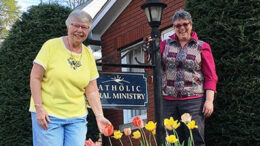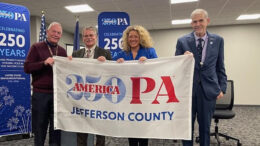Cyber charter schools produce too little bang for too much buck.
That was the consensus among Cranberry Area School District board members at a work session Monday night. The school board’s regular meeting is next week.
“They need reeled in,” board member Lance Mitchell said.
Mitchell, addressing other board members, said that he had received a phone call from a citizen who was concerned about the amount of money funneled to cyber schools.
The citizen suggested that school districts should get together and approach state legislators for a solution, Mitchell said.
Other board members agreed that the subject must be addressed.
Superintendent Bill Vonada said the cyber charter school issue has become a nationwide crisis.
“As public schools, we can’t change it. It’s got to be a legislative movement,” Vonada said.
Cyber charter schools are independent public schools that use technology to deliver curriculum.
They operate under a charter from the Pennsylvania Department of Education and must be organized as public, nonprofit corporations, according to the department’s website.
There are 13 cyber charter schools operating in Pennsylvania, according to the Department of Education.
Nationwide, public schools do not look favorably upon cyber charter schools, Vonada said. On Monday night, board members listed some drawbacks, including that cyber school teachers do not need certification and that the schools require a measure of discipline from students that some do not possess without help.
A 2015 national online charter school study found that students in cyber school performed less well in math and reading than their peers in brick-and-mortar schools.
Further, students in cyber schools receive less live contact with teachers than those in traditional classrooms, the study said.
One of the biggest misconceptions is that cyber school educations are “free,” Vonada said.
Cranberry Area School District had to pay out more than half a million dollars to cyber charter schools in the 2015-16 school year, and those payments were partly blamed for the district’s inability to pass a budget this year that did not include a tax increase.
Cyber schools and other charter schools are reimbursed at the same rate as brick-and-mortar schools, but they have none of the overhead and building maintenance costs, Vonada said.
“At least get the cost down to the actual cost,” Vonada said.
“It’s not a simple issue,” he said.
Most recently, the NAACP and Black Lives Matter movement have spoken out against charter schools saying that they increase segregation.
All of the Cranberry School Board members were in attendance at Monday night’s work session, including President Tom Neely, First Vice President Sue Clarke, Second Vice President Camae Bunyak and members Robert Blauser, Ken Brannon, Hal Carbaugh, Mark Marterella, Heidi Murdoch and Mitchell.






































